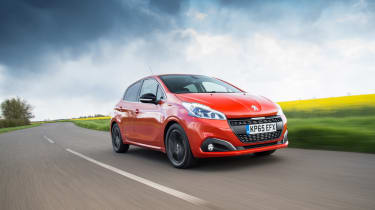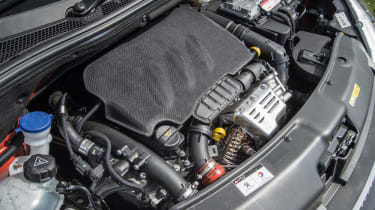Peugeot 208 review - a supermini for keen drivers? - Peugeot 208 engine and transmission
Not the best-driving car in the class, but GTi models prove there's a good chassis underneath Peugeot's supermini
The 208 range is built around two, three-cylinder petrol power units, in a few different states of tune, and one, 1.6-litre turbodiesel also available in different power outputs.
Smallest of all is the 1.0 PureTech 68, which comes with a five-speed manual transmission. It develops 67bhp at 6000rpm and 70lb ft of torque. Fine in a flyweight Peugeot 108, but a little less than you’d really want in a 208.
The 1.2-litre, three-cylinder PureTech 82 gets either a five-speed manual or five-speed automated-manual transmission. We’d steer well clear of the latter, which is jerky and slow despite years of refinement – think automated manual, think old Smart Fortwos and their head-bobbing changes. Power is 80bhp in each, with 87lb ft of torque from 2750rpm.
Much more appealing is the turbocharged version of the 1.2 PureTech. Thrust rises to 109bhp at 5500rpm and torque jumps significantly, to 151lb ft from a relatively low 1500rpm. You’ll need a little more on the rev counter before you really start to see the engine’s best, but in the lightweight 208 it feels well-suited. Transmission options are a six-speed manual and six-speed torque converter automatic.
The 1.6 BlueHDi diesel is available in 74bhp, 98bhp and 118bhp outputs, with respective increases in torque – 170lb ft, 187lb ft and 221lb ft. No automatic gearbox is available on the diesel models – all but the BlueHDi 120 get a five-speed manual, the top model a six-speed.




